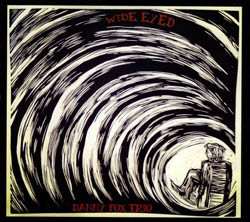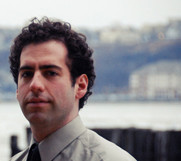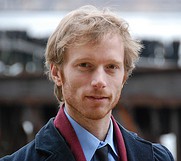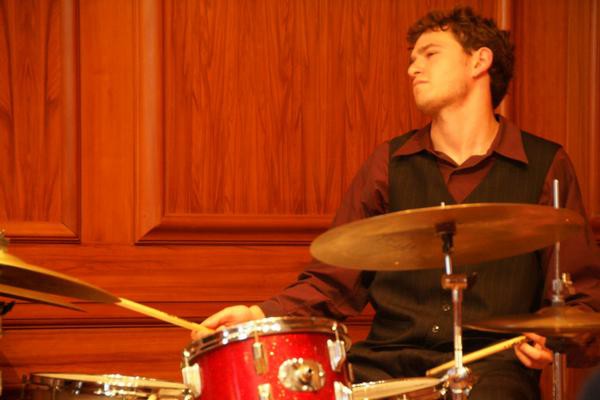
Danny Fox
Wide Eyed
Album 2014 on Hot Cup Records label
Jazz (Post-Bop)
"Formed in 2008, the Danny Fox Trio, featuring pianist Danny Fox, bassist Chris van Voorst van Beest, and drummer Max Goldman, is a true working band. Whether holed up in a Queens basement rehearsing or touring around the country crammed into a sedan, the trio has spent countless hours developing a rapport that's immediately palpable in their music.
This chemistry not only contributes to the precision of their performances, but allows each member to feel confident enough to take musical risks. This contrast between cohesive, cogent ensemble execution and the excitement of spontaneous improvisation adds an energy that is sorely lacking in much of today's music, regardless of genre. Though rooted in jazz, the three versatile musicians are also active in chamber music, bluegrass, afrobeat, electro, and New Orleans funk, thereby giving the band a sound that is all-encompassing yet strikingly individual.
Drawing on influences as varied as Ellington, Bartok, The Meters, and Bernard Herrmann, the music can switch gears at any moment yet remains cohesive thanks to strong motivic development and rigorous arrangements that challenge the traditional roles of the piano trio instruments. Having committed these intricate and challenging compositions to memory and performed them scores of times, the influence and esthetic of rock bands is readily appreciated. The trio explores a wide range of novel techniques to eschew standard forms and roles. The piano, typically both the lead melodic and harmonic voice, rarely performs these two roles simultaneously. Instead, Fox opts for textures that feature the abilities of his band mates and explore the more extreme ranges of the piano.
In addition to fulfilling the traditional role as rhythmic anchor, bassist Chris van Voorst van Beest provides melodies, counterpoint, and coloristic arco effects adeptly. Drummer Max Goldman employs traditional drumbeats effectively, but often opts for a more orchestral approach, mimickingsymphonic playing. The compositions themselves feature extensive melodic and motivic development, sometimes hovering around a theme that is only a few notes long, and sometimes building phrases over time to great emotional heights. The eleven pieces on Wide Eyed navigate through a vast array of grooves, harmonies, time signatures, tempo shifts, free improvisations, and dynamics while always remaining grounded in the thematic material, giving the music a seamlessness and cohesion such that it is both challenging and highly listenable.
The album opens with the insistent bass groove of "Sterling", which the trio unfolds in unexpected ways: from the slippery, danceable odd meter rhythm of the opening melody to the introspective rubato bass melody and jagged drum punctuations that follow. The song exemplifies the motivic style of composition as the opening six-note theme is modified through new harmonies, tempi, and instrumentation to spin out sections of varied moods. This theme is sometimes front and center and other times lurking, as when the left hand of the piano plays a fast version of it under dense minor chords. "Bonkers", written by Fox while going mad from practicing music for a circus, is a meeting of Prokofiev-like melody, African rhythm, and free improvisation.
"All Tolled", an epic piece spun out of a pencil accidentally tapping a rhythm on a desk, shows the trio's range from ferocious bombast to tender lullaby and spotlights the group's creative use of their instruments, as in the introduction where the piano plays on the extreme high and low registers as a background for the bass melody. Throughout, Goldman displays his well-rounded approach to the drum kit, sometimes laying down specific beats and other times mimicking orchestral percussion.
The bluegrass- inspired "Drone" shows the trio's playful side and the influence of Fox's second instrument: banjo. The subdued title track Wide Eyed opens with a moody cinematic simmer before piano/bass counterpoint explores rich harmonic dissonances. Confederates is a sinister march with ecstatic jolts, followed by "Short Al in Brooklyn", a deceivingly tricky rhythmic proposition disguised as a light-hearted swinger, written for a famous NYC sports talk radio caller. "Patriot Daze" and "Punches" show Fox's heavy classical influence, using both hands to equal effect, and the trio's adept use of dynamics.
"Funhouse Memory" filters funk through a funhouse mirror with off-kilter rhythms and spooky chords. The wildly-phrased canon seems to come out of nowhere but derives simply from the first theme stated in the piece. The album closes with the chamber-like "Tumble Quiet", written against the backdrop of a faint clothes dryer in a quiet house, which floats from ethereal chords toward thumping tribal grooves before reaching a plaintive calm. The bass moves seamlessly between contrapuntal melodies and earthy bassline ostinatos. "Wide Eyed" is about inhabiting a state of wonder and surprise about the world around us. It's about searching for possibility and embracing new ideas all while taking inspiration from what you've already taken in."-Hot Cup
Musicians
 | Danny Fox p, US piano, album by |
 | Chris Van Voorst Van Beest b, US bass |
 | Max Goldman dr, US drums |
Album Tracks 

| No | Title | Artist | Composer | Duration | |
|---|---|---|---|---|---|
| 1 | Sterling | Danny Fox | 6:58 | ||
| 2 | Bonkers | Danny Fox | 6:02 | ||
| 3 | All Tolled | Danny Fox | 7:40 | ||
| 4 | Drone | Danny Fox | 4:05 | ||
| 5 | Wide Eyed | Danny Fox | 4:37 | ||
| 6 | Funhouse Memory | Danny Fox | 6:10 | ||
| 7 | Tumble Quiet | Danny Fox | 7:45 |
30sec audio samples provided by ![]()
